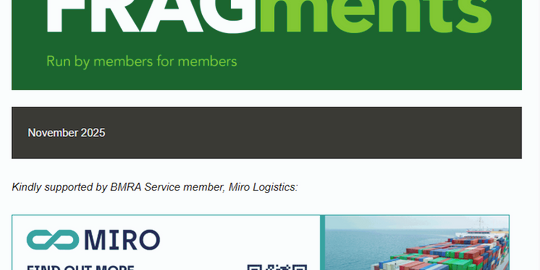Recycling is key to bridge circular economy and climate policy
EuRIC, the European Recycling Industries’ Confederation, of which the BMRA is a founding member, has released its strategic priorities for the recycling industry for the period 2019-2024.
Following the vote of consent at the European Commission by the Parliament on December 27, EuRIC fully backed the first priority of the Commission to put forward a European Green Deal with the circular economy being a key element of it.
By turning waste into secondary raw materials, the recycling industry not only plays a vital role in the circular economy but also saves a substantial amount of CO2 and energy.
Recycling is both resource-efficient and climate-efficient and thus a key sector to make Europe the first climate-neutral continent, stressed Emmanuel Katrakis, Secretary General of EuRIC.
To address the main obstacles hindering recycling activities in Europe and unlock the full potential of the transition towards a circular economy and climate-neutrality, EuRIC sets five top priorities:
1. Reward recycling environmental benefits to pull the demand for recycled materials in new products and level the playing field with primary materials based on market & fiscal-based instruments, green public procurement and recycled content targets for dedicated streams;
2. Realise an internal market for recycling through simpler and faster waste shipment procedures, harmonised EU or national end-of-waste criteria for targeted streams, a new status of “secondary raw materials to level the playing field with primary materials, both in terms of regulatory constraints and public perception;
3. Strive for a competitive recycling sector in Europe and globally by enforcing competition in the waste management and recycling sector to forbid reserved markets and cross-subsidisation, implementing a pragmatic approach to residual waste treatment and ensuring free and fair access to international commodity markets;
4. Align the interface between waste, product and chemicals to trusted circular flows by phasing out substances of concern at design stage and implementing a risk-based approach taking into consideration the intrinsic specificities of waste as a resource;
5. Making design for circularity the rule rather than the exception through requirements to improve products’ recyclability and recycled content, reward mechanisms such as eco-modulation of EPR fees and eco-labelling to empower consumers’ sustainable choices.
EuRIC priorities to boost the circular economy and combat climate change are available here.


